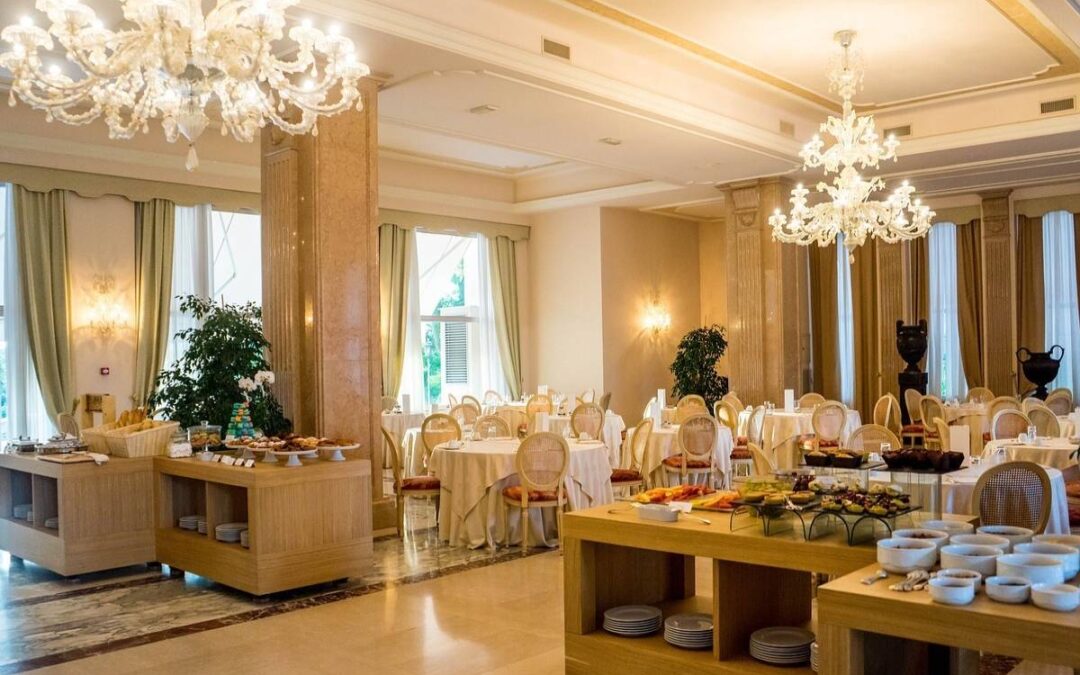With the advancements in science and technology, the world is moving forward rapidly. In the context of the hospitality industry, it is time to say goodbye to travel agents and say hello to tech-savvy travellers who are opting for a new way to book their hotel stays.
With the rise of the Direct-to-Customer (D2C) strategy, Indians are taking matters into their own hands and booking their stays directly with hotels. All this has made travel planning much easier and more convenient than ever before.
This article will explore the benefits of a D2C strategy for Indian hotels and how cutting down the middleman can help stand out in this highly competitive industry.
Rise of Direct Bookings in India
The travel market in India is rapidly evolving. The rise of technology and the changing preferences of travellers has driven significant shifts in the industry. One of the most notable trends in recent years has been the rise of direct bookings, as Indian travellers increasingly opt to book their hotel stays directly with hotels.
Here’s an overview of the current travel market in India and the factors contributing to the rise of direct bookings:
- According to the IMF, India is one of the world’s fastest-growing travel markets, with a growth rate of 6.1% in 2023.
- The COVID-19 pandemic has significantly impacted the travel market in India, with domestic travel becoming increasingly popular due to travel restrictions and health concerns.
- The online travel market in India is highly competitive, with a range of domestic and international players vying for market share.
Now that we have a basic idea of the current scenario of the Indian hospitality industry let us take a look at the various factors that contribute to the rise of direct bookings:
Increased Access to Information
With the rise of online travel platforms, Indian travellers can now access information about hotels and travel options. This has enabled them to make more informed decisions and compare prices and offerings more easily.
Lower Prices
Many hotels now offer lower prices for direct bookings, as they can save on commission fees that would otherwise be paid to third-party travel agencies. This has made direct bookings a more cost-effective option for many travellers.
Personalised Service
Direct bookings often provide greater opportunities for hotels to offer personalised service to guests, as they have more control over the booking process and guest experience. This can help to build stronger relationships with guests and encourage repeat business.
Flexibility
Direct bookings often offer greater flexibility than bookings made through third-party travel agencies, as hotels are able to offer more flexible cancellation policies and other options that meet the needs of individual guests.
Trust
With the rise of online scams and fake listings, many travellers now place greater trust in direct bookings with established hotel brands that they know and trust.
D2C Strategy in Play
A D2C (Direct-to-Consumer) strategy can be a game-changer for Indian hotels and accommodation providers looking to take advantage of the rise of direct bookings in the hospitality industry. By cutting out the middleman and offering direct bookings, hotels can offer better deals and promotions to customers, ultimately leading to increased revenue and profitability. Here’s how a D2C strategy can help Indian hotels take advantage of the rise of direct bookings:
Cost Savings
By reducing the reliance on third-party travel agencies, hotels can save on commission fees and other associated costs. This can free up resources to invest in other areas of the business, such as customer service, marketing, and product development.
Better Deals and Promotions
Direct bookings allow hotels to offer better deals and promotions to customers, helping them drive direct bookings and increase customer loyalty. Hotels can incentivise customers to book directly by offering exclusive discounts and packages rather than through third-party travel agencies.
Increased Customer Data and Insights
Direct bookings allow hotels to gather more data and insights about their customers, which can help them to better understand their needs and preferences. This data can then be used to personalise the customer experience, develop targeted marketing campaigns, and improve overall customer satisfaction.
Improved Customer Service
Direct bookings provide hotels with greater control over the customer experience, which can lead to improved customer service and satisfaction. By offering personalised experiences, hotels can build stronger relationships with their customers and encourage them to repeat bookings.
Stronger Brand Reputation
A D2C strategy can help hotels to build a stronger brand reputation, as they are able to control the customer experience from start to finish. By offering a seamless and personalised booking experience, hotels can differentiate themselves from competitors and establish themselves as a trusted and reliable brand.
Successful D2C Examples
Direct-to-consumer (D2C) strategies have become increasingly popular in India in recent years as companies seek to connect with customers directly and create more personalised experiences. Here are some successful D2C strategies implemented by other industries in India, along with how hotels can follow suit:
FMCG Industry
FMCG businesses like Patanjali and Amul have successfully implemented D2C strategies by creating their online stores and leveraging social media platforms to promote their products. Hotels can follow suit by creating their own online booking platform and using social media to promote exclusive deals and packages.
Fashion Industry
Fashion brands like FabIndia and Biba have successfully implemented D2C strategies by creating their own online stores and offering personalised recommendations based on customer preferences. Hotels can follow suit by creating personalised experiences for guests, such as customised room amenities or personalised dining options.
Health and wellness industry
Companies like cure.fit have successfully implemented D2C strategies by offering personalised fitness and wellness solutions through their own apps and online platforms. Hotels can follow suit by offering personalised wellness programs and experiences by analysing customer behaviour.
Consumer electronics industry
Brands like Xiaomi and OnePlus have successfully implemented D2C strategies by offering their products exclusively through their own online stores, thereby cutting out intermediaries and reducing costs. Hotels can follow suit by offering exclusive perks and benefits to guests who book directly through their own online booking platform.
Businesses in the hospitality industry can learn from these successful D2C strategies by creating their own online booking platforms, offering personalised experiences for guests, leveraging social media to promote exclusive deals and packages, and offering exclusive perks and benefits to guests who book directly through their own platforms.
Final Words
Implementing a direct-to-consumer (D2C) strategy can provide numerous benefits for hotels and accommodation providers in India. By focusing on direct bookings, hotels can build stronger relationships with their customers, offer personalised experiences, and reduce costs by cutting out intermediaries. With the increasing popularity of online bookings and the rise of social media, hotels have a unique opportunity to connect with customers directly.
Adaan Digital Solutions is a company that can help hotels in the hospitality industry adopt D2C strategies with ease. With our expertise in mobile and app development, internet marketing, and social media marketing, we can help hotels create a strong online presence and reach out to customers directly through various digital channels.
Our services are tailored to meet the specific needs of the hospitality industry, making it easier for hotels to adopt and implement D2C strategies. Partner with Adaan Digital Solutions and take advantage of our expertise and experience in implementing D2C strategies to stay ahead in the market.
FAQs
What is a D2C strategy, and how does it benefit Indian hotels?
A D2C (direct-to-consumer) strategy involves connecting with customers directly without the need for intermediaries like travel agents or online booking platforms. By focusing on direct bookings, Indian hotels can build stronger relationships with their customers, offer personalised experiences, and reduce costs.
How can Indian hotels implement a D2C strategy, and what are some best practices?
Indian hotels can implement a D2C strategy by creating their own online booking platform and leveraging social media to promote exclusive deals and packages. Best practices include offering exclusive perks and benefits to guests who book directly, providing personalised recommendations based on customer preferences, and creating a strong online presence through mobile and app development, and social media marketing.
What are the potential challenges of implementing a D2C strategy for Indian hotels?
One potential challenge of implementing a D2C strategy is the need for additional resources and expertise in areas like mobile and app development, internet marketing, and social media marketing. Additionally, hotels may face competition from existing intermediaries in the market.
How can Indian hotels measure the success of their D2C strategy?
Indian hotels can measure the success of their D2C strategy by tracking metrics like direct bookings, website traffic, social media engagement, and customer satisfaction. They can also use analytics tools to gain insights into customer behaviour and preferences, which can inform future marketing and promotional efforts.
What role can technology play in implementing a successful D2C strategy for Indian hotels?
Technology plays a crucial role in implementing a successful D2C strategy for Indian hotels. By leveraging mobile and app development, and social media marketing, hotels can create a strong online presence and reach out to customers directly.
Additionally, technology can help hotels offer personalised experiences and recommendations, track customer behaviour and preferences, and optimise their marketing and promotional efforts for maximum impact.






